On August 23, 2021, two decrees relating to “Determine the maritime jurisdictional areas” of the aforementioned trans-Andean country were published in the Official Gazette of the Republic of Chile, one of these decrees (CVE 2000795) implies an overlap in the delimitation of sovereign territories of the Argentine Republic, more specifically about: 5 thousand square kilometers belonging to the Argentine continental shelf. It should be noted that this instrument has been signed by President Sebastián Piñera, together with his Ministers of Foreign Relations, Andrés Allamand, and of National Defense, Baldo Prokurica.
The attempt to determine new limits in the aforementioned maritime areas represents a violation of the government of President Piñera to the Treaty of Peace and Friendship signed between Argentina and Chile in 1984, which under the mediation of Pope John Paul II, meant a solution to the territorial conflict of the Beagle Channel; All of which has opened an escalation of diplomatic tensions between both nations, a few months after the departure of the current Chilean president from the Palacio de la Moneda (March, 2022) and just two weeks after the holding of national wide legislative primary elections in the Argentine Republic, next September 12, 2021.
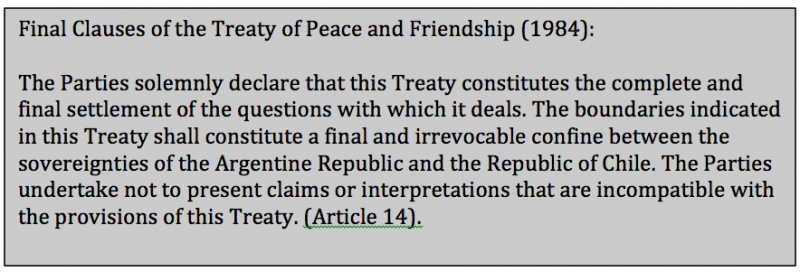
Implications
On August 28, the Argentine Foreign Ministry expressed through a press release that:
“The measure attempted by Chile seeks to appropriate a part of the Argentine continental shelf and an extensive area of the seabed and ocean, a maritime space that is part of the Common Heritage of Humanity in accordance with the United Nations Convention on the Law of the Sea. Consequently, the aforementioned Chilean claim is not acceptable to the Argentine Republic and raises a situation that must be resolved through dialogue in defense of Argentine rights; in accordance with the historic brotherhood of our peoples and international law,” the statement concluded.
Later, President Piñera stated that: “What Chile is doing is exercising its right and declaring its continental shelf. What we are doing as a government is a process of continuity of foreign policy and we hope in November to send to the Commission on the Limits of the Continental Shelf of the United Nations the continental shelf west of the Antarctic Peninsula.”
Additionally, Piñera expressed: “We will have to see how to solve it and the first path is dialogue. We are absolutely open, and we have discussed this with President Alberto Fernández when he visited Chile, to seek ways of dialogue to resolve this issue. If we do not reach an agreement, there are many other instruments at the international level.”
For his part, this Monday, August 30, the vice president of Parlasur, the Argentinian Oscar Laborde, assured that: “what corresponds of Parlasur is for Chile to comply with international commitments, such as that signed with the Argentine Government in 1984 and ratified in subsequent meetings in the United Nations,” and remarked that, although they evaluated it, finally the dialogue table will not be called from the Mercosur Parliament.
Argentinian position
The Argentine government position is tied with the Treaty, therefore, and according to what was expressed by its Foreign Ministry, Chile’s decision “intends to project the continental shelf east of meridian 67º 16’0, which clearly does not agree with the Treaty of Peace and Friendship concluded between both countries in 1984”. Similarly, explain that:
The outer limit of the Argentine continental shelf in this area is reflected in National Law 27,557, approved on August 4, 2020 unanimously in both Chambers of the National Congress and promulgated by the Executive Power on August 24 of that same year. Said law merely collects in an internal norm the timely presentation made by the Argentine Government on said area before the Commission on the Limits of the Continental Shelf (CLPC). This presentation is fully consistent with the Treaty of Peace and Friendship and was approved without question by said Commission with the purpose of establishing a definitive and mandatory maritime boundary in accordance with the United Nations Convention on the Law of the Sea (UNCLOS). Neither the presentation nor the Commission’s decision were contested by Chile.

Considerations
Considering that it is an arbitrated legal award and already resolved (Res Judicata), sustained and widely respected by the Community and International Law, the decision of President Sebastián Piñera to establish maritime jurisdictional areas over sovereign territories of the Argentine Republic, seems to be due to a diversionary maneuver of the internal conflict that the trans-Andean country is going through.
The possibilities are growing that the Constituent Process underway in the country does not reflect the real demands of the Chilean people, thus generating new sources of social, economic and political conflict. In summary, Piñera, who was able to make this decision during his first presidential term (2010-2014) or at the beginning of his second presidency (2018-2022), seems to now want to advance in a new strategy to favor the Chilean elite, to which he represents, in a scenario of evident national and international crisis.
On the Argentine side, this diplomatic conflict – which was not sought by the Casa Rosada – could be used by the Alberto Fernández government
to reduce tensions in a very heated electoral climate. However, the main focus for all political forces in Argentine is centered on “the mother of battles”: controlling the Argentine Congress.
At the social level, if the conflict continues to rise and becomes a “trend” in the media, this could revive xenophobic feelings, from side to side of the Andes Mountains, latent by -for example- the Malvinas Question.
Disputed area
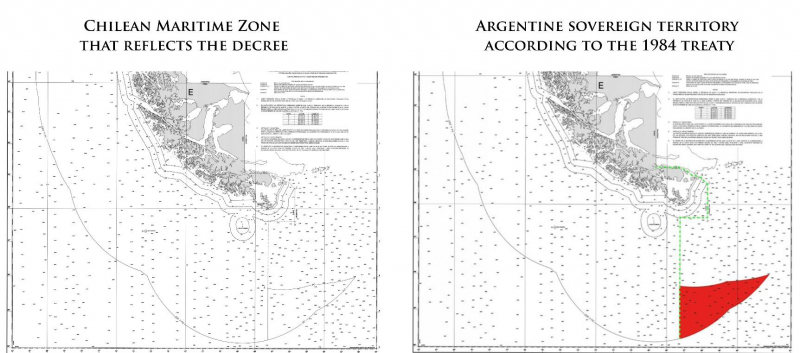







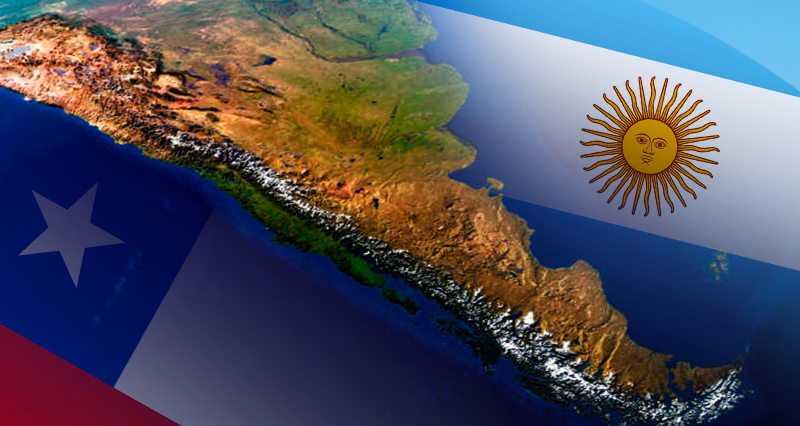

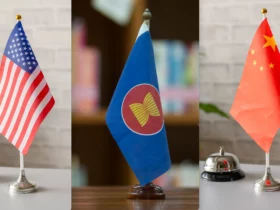
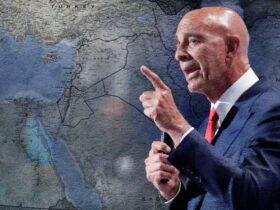
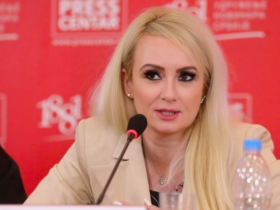
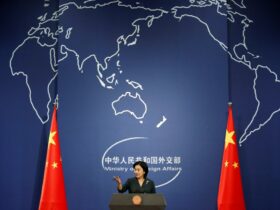
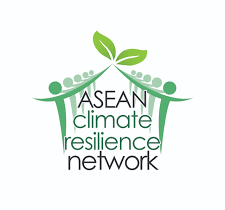



Leave a Reply